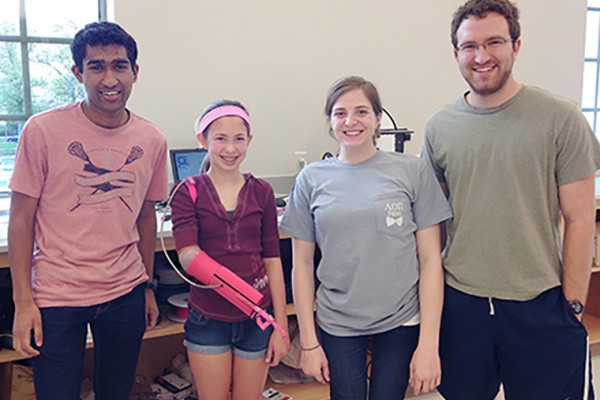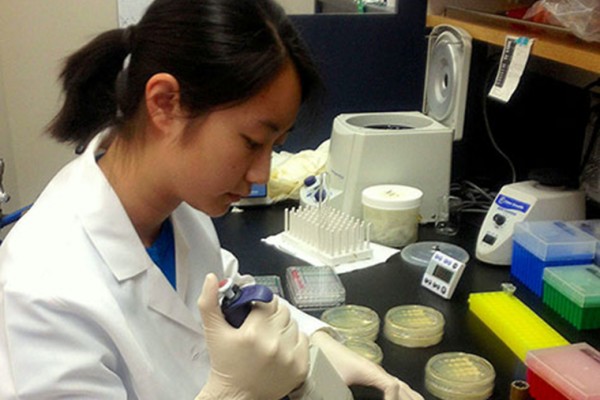IDEA Labs teams unveil medical innovations
Interdisciplinary student teams presented innovations designed to solve problems in health care at IDEA Labs’ Demo Day last month. Engineering student Matthew Burkhardt (seated) won a summer internship through the university’s Skandalaris Center to continue developing his team’s invention. His teammates are (from left) Yuni Teh, Katrina Leyden, Adina Stoica and Elizabeth Rosenberg.
School of Medicine nurses honored with 2014 Excellence in Nursing awards
Four School of Medicine nurses recently received the 2014 Excellence in Nursing Award from St. Louis Magazine, honoring local nurses who have made a difference in the lives of their patients and colleagues. Several others were honored as finalists.
Study: Can vitamin D slow heart complications from diabetes?
Washington University researchers are studying African Americans with diabetes to learn whether vitamin D can slow the development of cardiovascular problems. Shown is principal investigator Carlos Bernal-Mizrachi, MD, with study patient Helen Randall.
Study helps explain why MS is more common in women
A newly identified difference between female and male brains with multiple sclerosis (MS) may help explain why so many more women than men get the disease, researchers at Washington University School of Medicine in St. Louis report.
$32 million NIH grant funds study of multipurpose infection fighter
A multi-institutional campaign to harness a newly recognized cellular defense against infection is being led by researchers at the School of Medicine. A $32 million grant from the National Institutes of Health is funding the collaborative, which could lead to drugs with unprecedented versatility in fighting different infections. Washington University’s Herbert W. Virgin IV, MD, PhD, is the principal investigator.
Mouse study offers new clues to cognitive decline
New research suggests that certain types of brain cells may be “picky eaters,” seeming to prefer one specific energy source
over others. The finding has implications for understanding the cognitive decline seen in aging and degenerative diseases such as Alzheimer’s and multiple sclerosis.
WUSTL students ‘print’ pink prosthetic arm for teen girl
Three biomedical engineering seniors at WUSTL are gaining national attention for the robotic prosthetic arm they developed for a 13-year-old St. Louis girl. Built on a 3-D printer, the arm is cheap, functional — and pink.
Huang wins this year’s Spector Prize
The Spector Prize, first awarded in 1974, recognizes academic excellence and outstanding undergraduate achievement in research. Students are nominated by their research mentors for outstanding research that has made substantial contributions to a field. This year, the prize has been awarded to Deborah Huang, who plans to
graduate this month with a major in biochemistry and molecular biology
and a minor in public health.
Diversity initiative raises awareness across Medical Campus
Daniel Blash and Denise DeCou, diversity and inclusion leaders at the School of Medicine, are on a mission to create a work environment that includes and nurtures people from all backgrounds. Their assignment is to reach 50 percent of the medical school workforce by June.
Garage slated for Medical Campus, employee parking shifting east
Employee parking will begin shifting to the east at the Washington University Medical Center as construction continues for the Campus Renewal Project, the School of Medicine’s new research and environmental health/central services buildings and the CORTEX District.
Older Stories


